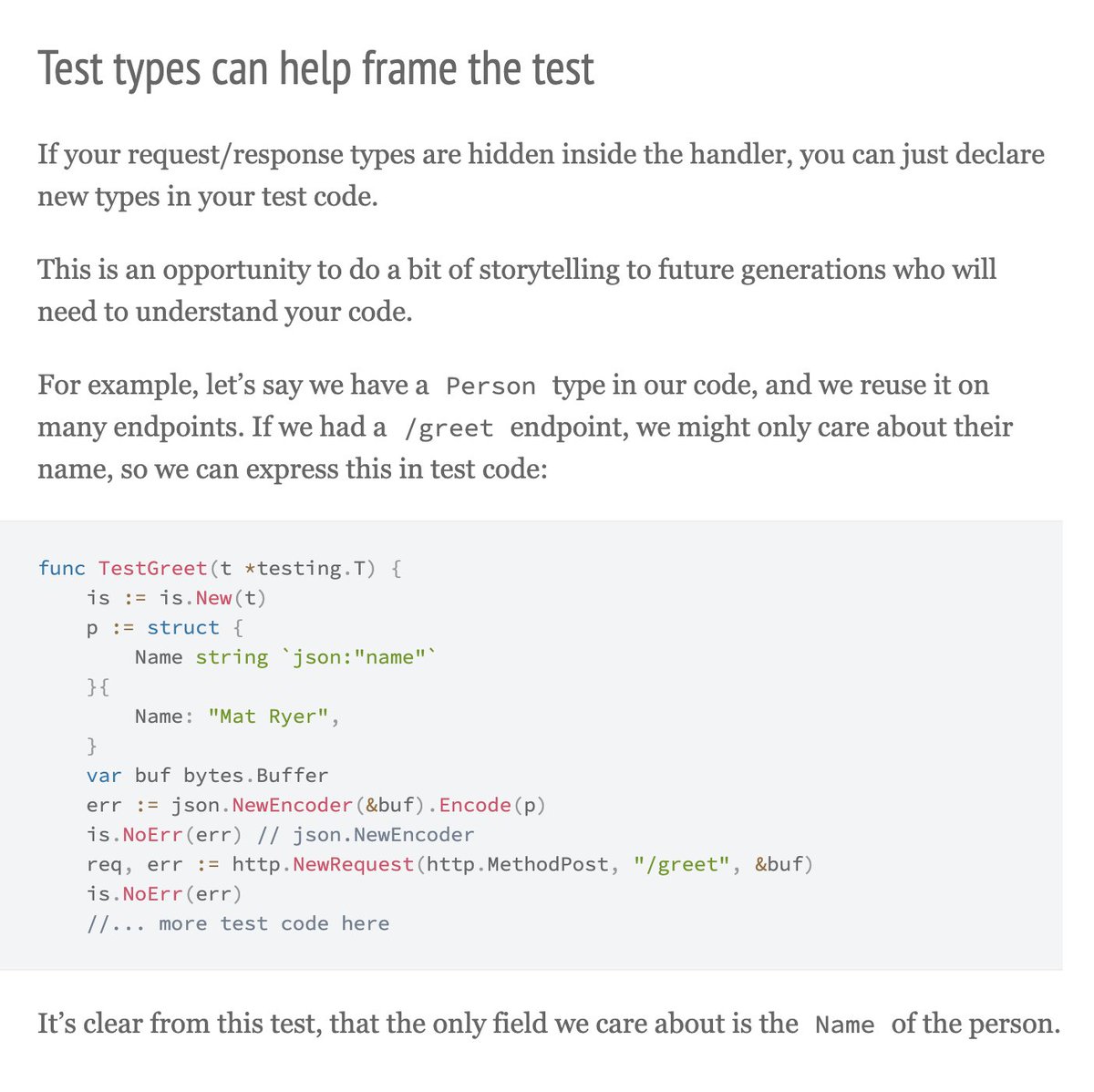
How I write HTTP services in #golang has changed over the years... here's my current style.
(Please consider sharing this with somebody you know who's learning Go.)
It's a yarn... 🧶
1/13
(Please consider sharing this with somebody you know who's learning Go.)
It's a yarn... 🧶
1/13
The handlers are methods on that server type. They can access the dependencies via the receiver.
4/13
4/13

My methods aren't actually http.Handler or http.HandlerFunc types, but they do return one when called.
5/13
5/13

You can also have handler-specific arguments with all the delicious type safety we get with Go.
It also means you can't get this handler without providing some values for the arguments.
6/13
It also means you can't get this handler without providing some values for the arguments.
6/13

I tend to use http.HandlerFunc a lot more than http.Handler, because I find the anonymous functions to be so useful.
7/13
7/13

I often want to run code before/after my handlers (like for auth, instrumentation, or other common api features.)
8/13
8/13

If I'm not using the request/response payload types anywhere else in the case, I put them inside the methods to keep them out of the way...
9/13
9/13

... this also means I will sometimes have different types in test code.
I mostly use integration tests for these handlers, so am rarely ever tempted to move the request/response types into package space.
10/13
I mostly use integration tests for these handlers, so am rarely ever tempted to move the request/response types into package space.
10/13

I use sync.Once to do handler-specific initialisation in a concurrent safe way.
(The pros say we should measure before we optimise, so be sure to check if this is worth doing in your particular case.)
11/13
(The pros say we should measure before we optimise, so be sure to check if this is worth doing in your particular case.)
11/13

Since our server type is just a struct, and our handlers are just methods - it makes code quite easy to test.
12/13
12/13

Follow for more classic #golang content, if you love content and who doesn't love content? #content
13/13
13/13
• • •
Missing some Tweet in this thread? You can try to
force a refresh







